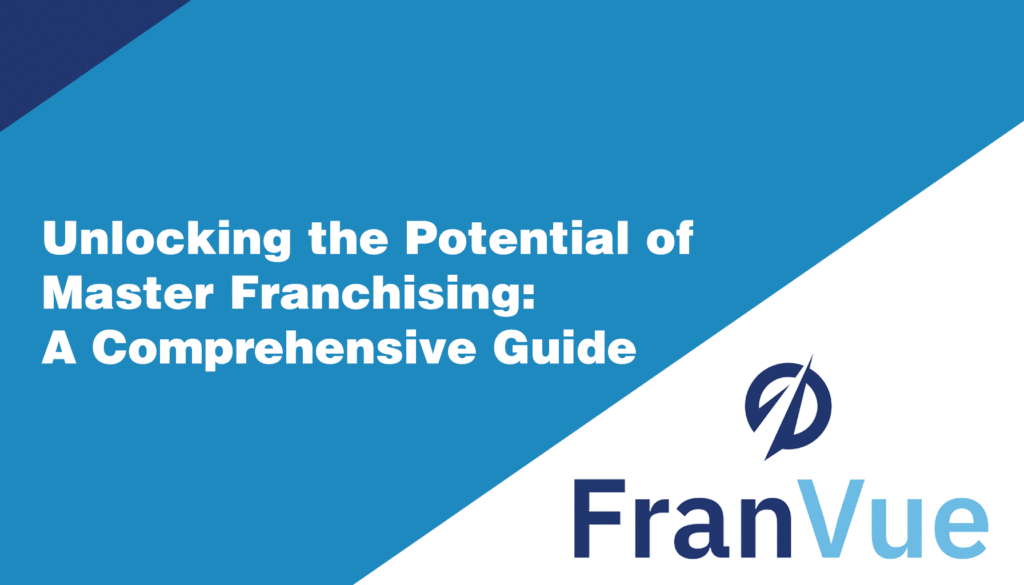What is a Master Franchise? A master franchise represents a unique approach to franchising, with a master franchisee playing a pivotal role. In this arrangement, an investor pays an initial fee to the business owner or franchisor, securing the rights to expand the business under its brand name within a specified region. Subsequently, the master franchisee takes on the role of the franchisor for that territory, assuming responsibilities such as recruiting, training, and supporting other franchisees in various areas, including marketing and operations. These master franchisees retain the initial franchise fees paid by other franchisees, effectively functioning as mini-franchisors responsible for managing and expanding businesses within their designated region.
Why Opt for Master Franchising? Franchisors choose the master franchisee approach when expanding their businesses, believing it facilitates rapid development with reduced capital risk. Master franchisees commit to launching a specified number of new franchises within a designated time frame, as outlined in their franchise agreement. This strategy allows franchisors to delegate their growth plans to entrepreneurs who may possess better insights into a particular territory, enabling effective execution of expansion plans. For instance, franchisors looking to expand their businesses to a specific city or country can enlist a master franchisee to spearhead this expansion.
While traditional franchise agreements typically outline the legal terms governing the franchisor-franchisee relationship, master franchise agreements involve multiple parties, including the master franchisor, master franchisee, and sub-franchisees. Consequently, these agreements incorporate complex revenue-sharing structures, encompassing franchise fees, royalties, and more. The specifics of these arrangements can vary significantly between franchises, depending on profit-sharing percentages and other legal terms. Given this complexity, consulting local franchise advisors with specialized expertise can prove invaluable.
The Benefits Master franchising offers clear advantages to both the master franchisor and master franchisee. The franchisor not only profits from selling franchises to master franchisees but also gains access to cross-border business growth opportunities that may be challenging to pursue independently due to limited knowledge of local economies and languages.
From the master franchisee’s perspective, they benefit from leveraging an established and recognizable brand name while receiving support from the franchisor. Furthermore, they stand to earn a share of ongoing royalties and franchise fees from their sub-franchises, which can range from 40% to 75%.
The Drawbacks Despite the numerous benefits of master franchising, it comes with certain risks. Once a master franchisee enters the picture, franchisors often have less direct control over their franchises, potentially resulting in brand dilution and inconsistent service standards. Additionally, as mini-franchisors, master franchisees assume the responsibility of recruiting other franchisees within their territory, a task that rests solely within their discretion.
There are clear advantages and disadvantages to having a master franchisee in place, and franchisors must carefully weigh these factors before committing to such a franchise model. When executed effectively, the master franchise system is a powerful concept for business growth, offering a promising opportunity for master franchisees, as master franchise fees are often less than those for a single franchised unit.
The Ideal Master Franchisee The ideal profile of a master franchisee embodies ambition, enthusiasm, and an entrepreneurial spirit. Strong organizational and management skills are essential, particularly when training franchisees to manage their own units effectively. While industry experience is desirable, it is not always a prerequisite. However, several additional considerations should be made before a franchisor delegates responsibilities to a potential master franchisee.
As a prospective master franchisee, conducting due diligence is crucial to ensure the master franchisor has a comprehensive and robust international business expansion plan. Thorough market research and validation are necessary to assess whether the product or service will be well-received in the new territory. Even if the master franchisor has conducted research, conducting independent investigations before committing to a master franchise plan is advisable.
During the selection process for becoming a master franchisee, scrutinizing key information about the business is vital. Reviewing the Franchise Disclosure Document (FDD) is a critical step in understanding the franchise’s history and the franchisor’s background, ensuring that the investment decision is sound. Armed with a comprehensive understanding of the business, the franchisor, and their team, prospective master franchisees can confidently sign the franchise agreement.
Conclusion Some of the world’s most successful franchises owe their success to the master franchising model. When implemented correctly, this approach is a potent tool that can propel your business to new heights. However, it is not without risks, and franchisors must carefully consider when, how, and why they should pursue such an expansion plan. Adequate preparation can help franchisors minimize risks and reap the full benefits of this model.
If you are considering purchasing a master franchise or even a single unit franchise and need guidance, consider taking to a certified franchise consultant from FranVue. We have a vast selection of franchises that can help you determine the best business opportunity for you to start this year.


